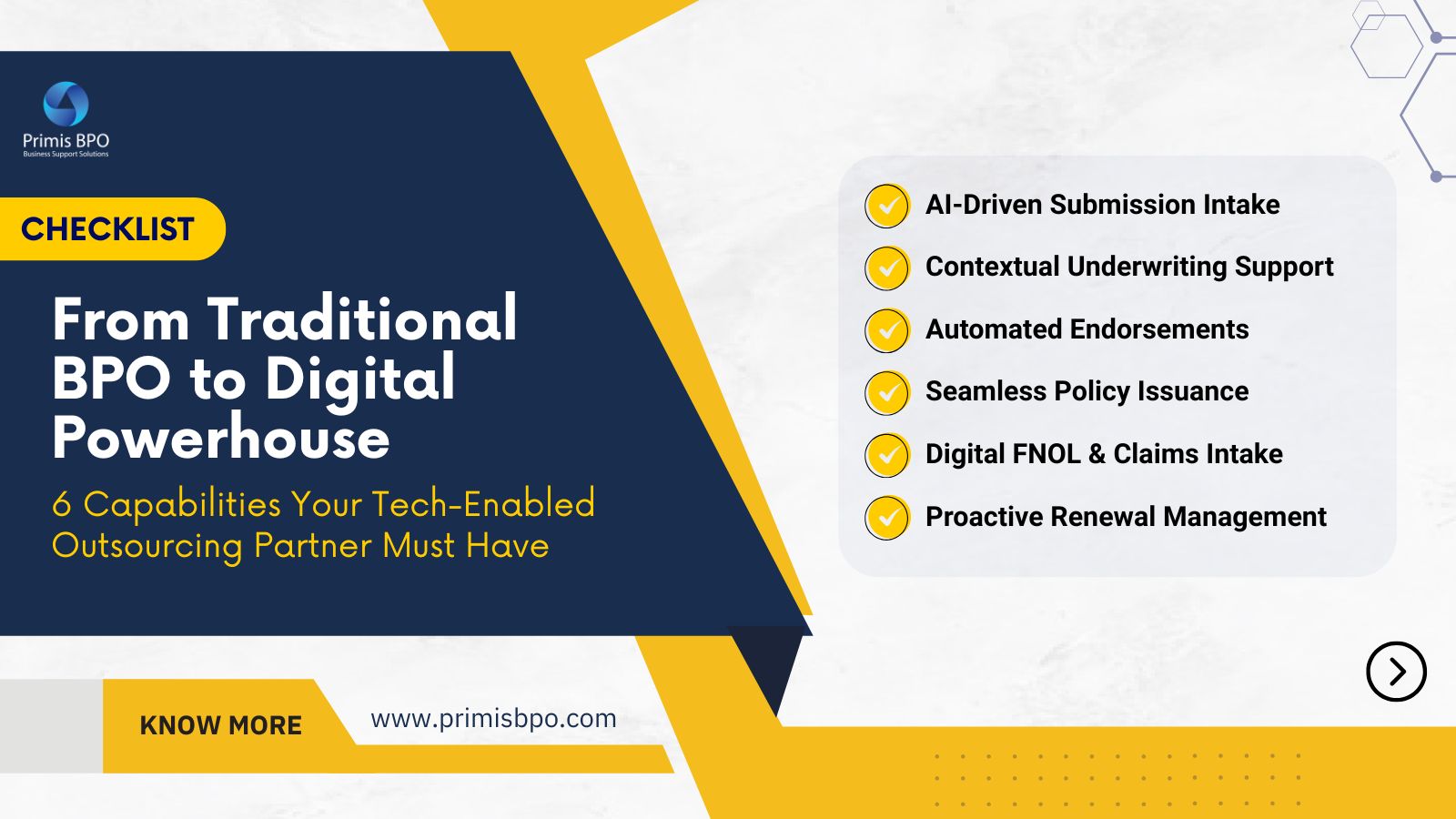
Repetitive and manual tasks surround insurance operations that typically involve human intervention. This leads to tedious and mundane work for employees, resulting in higher error rates. Henceforth, the race towards truly adopting IT innovation has started. For many insurance carriers, it has begun with rethinking their existing processes. In this regard, while traditional policy management processes done manually had its place in the past, a business in the present, modern, rapidly evolving world needs a more effective method.
But are you puzzled about which option to go for? Wondering which method will make your policy management processes seamless and yield higher ROI? Well, then implementing RPA will be the right choice for you.
Using process automation in policy management processes ensures end-to-end digital integration of businesses. Automation in policy management processes helps to improvise the entire process and deliver measurable outcomes when deployed with a systematic strategy.
This blog will walk you through the bottlenecks related to manual policy management processes and how the efficiency of the complete process can be improved by unleashing the true power of automation.
How Can Automated Processes Meet Manual Policy Management Challenges?
Underwriting
The Manual Method
For any insurance business, manual underwriting can be one of the most time-consuming processes. An underwriter needs to go through the applicant's credit history and score, savings amount, loss-run reports, and more to assess the risk thoroughly. Oftentimes, all this information is dispersed via various platforms. Processing these data manually is quite a tedious & sluggish process.
The Automated Method
With automation, you can speed up this entire process of information gathering and analysis. By automating the underwriting process, insurers can mine data from various sources and access the required data 24*7. This can help underwriters make decisions based on real-world behavior, leading to better risk assessment in a relatively shorter time period.
Quoting
The Manual Method
The manual quoting process can be tedious and inaccurate. Your insurance business simply can't grow with an inefficient quoting process in place. This will result in substantial business losses and customer attrition.
The Automated Method
Modern automated quoting solutions help you provide quotes to potential customers without having to interact face-to-face or via phone call. Instead, your leads can fill out the required information and quickly get an approximate estimation of what they would have to pay.
So, if you're looking for an impeccable policy management system that will drive enhanced returns in your insurance business, quoting solutions should be automated!
Policy Issuance & Approval
The Manual Method
Policy creation and approval entail a lot of manual work as the carrier needs to fill in internal information after underwriting audits and checks. Therefore, there are countless chances for a policy to slip through the cracks before it is completely enacted. One executive can approve it, another may leave it unopened in their inbox, others might reject it – and on top of that, there is no system in place to make sure that progress is made. Gradually, the policy is forgotten, and no solution ever takes place.
Moreover, even if the policy does make its way to implementation despite the lack of an appropriate approval system, it does not guarantee that the policy will be written in the correct format without any errors. At its worst, an inaccurately documented policy can result in huge losses, proving to be detrimental to the business.
Sounds overwhelmingly complicated?
The Automated Method
Automating insurance policy management processes powered by Artificial Intelligence and RPA technologies enable carriers to optimize and streamline policy issuance. With automation, the issuance and approval process functions like a well-oiled machine. A policy awaited review is pretty hard to miss.
This ensures pre-build analytical techniques for easing up the tedious process that helps insurers significantly cut down the turnaround time and enhance accuracy, allowing carriers to focus on improving the customer experience.
Renewals
The Manual Method
The manual policy renewal process places the entire burden on individuals. It is the employee’s responsibility to remember which policy needs to be renewed when, and if they forget, there is no system in place to remind them. This implies that outdated policies go unnoticed, which leaves room for potentially catastrophic situations that directly contradict government regulations.
The Automated Method
Automating the policy renewal process eliminates the issues mentioned above. RPA-driven policy renewal systems can notify the professionals who are in charge when the renewal time comes, keeping your policy management system on schedule.
Not just that, there’s more to it!
Thanks to the automated renewals system, insurers can notify policyholders of the pending premium end date and help them renew the policy promptly. If done properly, policyholders undergo a seamless and stress-free process.
Policy Distribution
The Manual Method
With manual policy distribution, finding out older files on a short notice can be a challenging task. Moreover, emailing out policies might seem like a viable distribution option, but it doesn’t work in the long term. Old emails may get deleted - by the recipient or automatic settings or simply buried under other mail. Printing out policies is even worse. It might get lost or tucked away in a tall stack of forgotten documents.
The Automated Method
With an automated policy management process, policy distribution can be much easier. Policies are preserved in one centralized location, accessible by all who require them. Both the old and updated versions are stored in an appropriate order. However, the main focal point of automated policy distribution is that everyone knows where to search for policies and will be notified if any changes occur.
To Wrap Up
Policy management is one of the core and crucial processes in the insurance business that needs to be efficiently taken care of. Leveraging automation in policy management processes can be completely game-changing. It paves the way for the smooth functioning of the whole process, improves operational efficiency, saves cost and time, and boosts productivity.
If you are thinking of automating your policy management processes, contact us today! We are looking forward to automating your insurance processes.
Recent Blogs

Optimizing Auto Insurance Underwriting Through Outsourced AI-Driven Risk Intelligence

[Checklist] From Traditional BPO to Digital Powerhouse: 6 Capabilities Your Tech-Enabled Outsourcing Partner Must Have

Outsourcing AI-Enabled Property Risk Analysis

Outsourcing AI-Powered Risk Assessment for Insurance Optimization

Augmented Underwriting: When Human Expertise Meets Digital Intelligence